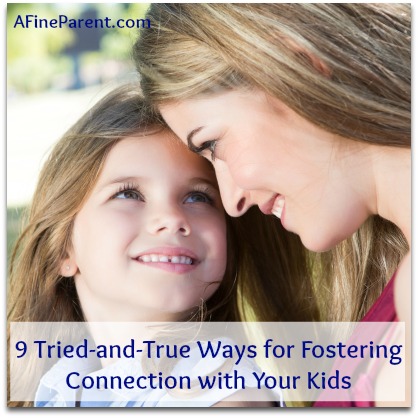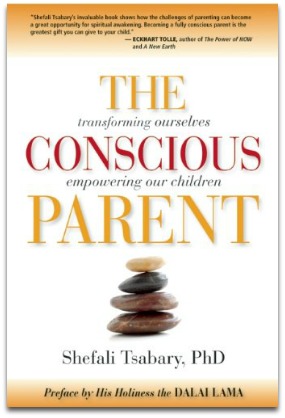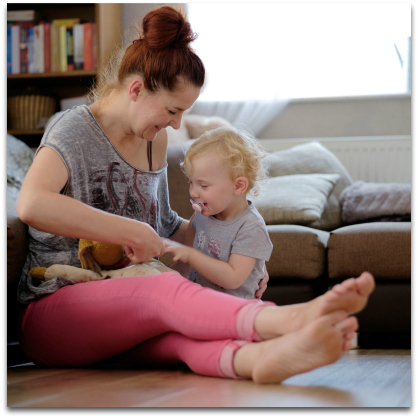 Many times I’ve looked over at the mom with the quiet well-mannered kids and wondered, “Am I the only one who’s a mess? Why does every other mother seem to have it together?”
Many times I’ve looked over at the mom with the quiet well-mannered kids and wondered, “Am I the only one who’s a mess? Why does every other mother seem to have it together?”
As a freelance writer with ten years of experience and counseling psychology graduate degree, I knew how to listen and be empathetic.
But all I knew about “parenting strategies” consisted of time out tactics and the “children should be seen and not heard” mindset I had been raised in.
After spending much of 2017 researching parenting techniques, I gleaned an alternative, which was less about discipline and more about connection. Surprisingly, I learned it’s not getting your kids to listen, but it’s improving your relationship that turns out to be the winning strategy.
However, even though I am a stay-at-home mom now, I worry about how much quality time I’m spending with my son. So that became my next quest.
Here are the 9 things I learned about improving my connection with kids.
1. Hold Onto Your Kids
These days we’re all into playdates, sleepovers and extracurricular activities. And why not? It gives us parents a break now that extended families and close communities are no longer the norm.
But in the book Hold On to Your Kids: Why Parents Need to Matter More Than Peers, Gordon Neufeld and Gabor Maté posit that in lieu of a parental figure, kids are forced to attach to their peers. This leads to a kind of “blind leading the blind” guidance at a time when kids still need their parents.
The secret to holding on to them is to slow down. As a mother said in the book: “It’s easy to forget when we’re rushing our kids to get from one activity to the next that it’s always about the relationship.”
2. See Them as Their Own Person
 We often forget our mini-mes are actually they’re own persons with dreams, desires and personalities of their own. In The Conscious Parent, Dr. Shefali Tsabary says, “Children aren’t ours to possess or own in any way.”
We often forget our mini-mes are actually they’re own persons with dreams, desires and personalities of their own. In The Conscious Parent, Dr. Shefali Tsabary says, “Children aren’t ours to possess or own in any way.”
We get caught up in how much they are achieving in their sports games and dance performances, and lose sight of what they really want. We remember our own heartbreak or forgotten dream and push our children to excel the way we weren’t able to. We put our relationship at risk because we forget that what our children really need and want isn’t fame or a fancy job. What they’re looking for is our love and attention.
3. Think Quality not Quantity
As a stay-at-home mom, I spend more hours a day with my sons than most parents. But that doesn’t mean my relationship is better than that of a work-outside-the-home mom. If I spend the majority of that time cleaning up or reprimanding my kids, I’m detracting rather than adding to the relationship.
To be more aware of how we’re spending our time, we need to start listening to how we are with our children. One way to make sure I’m getting enough quality time is to schedule a one on one date with each of my sons. This helps with rule #1 and buffers the rocky road of physical separation and conflict that naturally come with having a school age child.
4. Reflect on Your Own Behavior
We spend a lot of time analyzing why our kids misbehave and react the way they do. We might even gripe about it to our friends and family as if our children’s problems are solely his own.
It’s easy to shift the attention from us to them when in fact children aren’t old enough to process all of their emotions. It’s likely that what they’re expressing is simply a mirror of what they’re seeing and observing in the world. Maybe even from us!
The next time your child has a tantrum or misbehaves, turn your attention inward. As Dr Shefali Tsabary says in The Conscious Parent, “Why am I being triggered right now? Why am I so unhappy with my child? What is my child exposing in my internal state of being?”
5. Teach Them Compassion
 We’re apt to be more impatient with our kids than we would be with an adult. But children are still growing and learning! They need our compassion more than our criticism. How we respond and react to their behavior will stay with them for the rest of their life.
We’re apt to be more impatient with our kids than we would be with an adult. But children are still growing and learning! They need our compassion more than our criticism. How we respond and react to their behavior will stay with them for the rest of their life.
The next time you scold them for spilling the milk or berate yourself for messing up, think about what kind of adult you want them to be. Do you want them to be self-compassionate and forgiving or critical and judgmental?
6. Connect Rather than Exclude
When our kids don’t listen or worse they’re hurtful to others, the last thing we want to do is hold them. In fact, popular parenting techniques like time-out, encourage us to shun them.
According to Neufeld and Maté, it is when kids are at their worst they need our love and acceptance the most. Otherwise, they grow up believing they’re lovable only when they’re “good.” If you’re unable to collect them in the moment, give yourself a time out and re-engage when you’re able to connect with those loving feelings for your children again.
7. Let Some Stuff Go
I know the pain of comparing myself to seemingly perfect parents. But the desire to mimic their always on-time, well-dressed, and well-behaved children is not only depleting, but leads to resentment.
I know my house won’t always be the cleanest and most organized. I’ve worked on accepting the fact that my kids will throw a tantrum or two – heck we all do at some point. And what’s helped me to let go of some of it is reminding myself of this Jane Fonda quote: “The challenge is not to be perfect…it’s to be whole.”
8. See Your Children as Teachers
Children have a way of bringing out the best and worst in us. But when it’s the latter, we believe the solution is punishment. But instead of forcing them to be perfect we can adjust our expectations and we can learn to direct our attention inwards and manage our own feelings of disappointment.
As parents we have the opportunity to use our experiences and triggers as lessons that no one will always do the right thing, but everyone can work at having the best intentions. We can also remember that every child is trying their best at all times. Most importantly, we can learn to see the world through their eyes with that beautiful beginner’s mind, which allows us to meet every experience as if we were seeing it for the first time.
9. Be Curious
 We become jaded as adults believing that we know everything. Our children try to tell us a story, but we’ve already heard it. We already know how it goes. But we don’t know how it goes for them. We don’t know their experience with it.
We become jaded as adults believing that we know everything. Our children try to tell us a story, but we’ve already heard it. We already know how it goes. But we don’t know how it goes for them. We don’t know their experience with it.
They want to be seen through our eyes. They want us to experience their wonder. Next time, your child wants to tell you something, ask them a question. Instead of assuming that they meant to be hurtful, ask them about their thought process. Be curious and you’ll open the door to their perspective of the world.
The 2-Minute Action Plan for Fine Parents
It is difficult to be self-reflective and an “understanding person” when we’re upset. And just when we think we have our kids figured out, they change. But in the long run when we work on being mindful of how we’re reacting and respond with loving attention, everything else falls into place.
A quick way to reconnect is to evaluate your relationship by asking yourself the following questions:
- What are your interactions with your children like? How much of the time are you berating, criticizing or reprimanding them versus being present and accepting with them?
- Do you have a regularly scheduled one on one “date” with each of your children?
- The next time you’re triggered instead of automatically reacting check in with your own emotions. Is there a reason why this particular incident is steaming you up inside?
- Five years from now what do you hope your relationship with your child will be like?
- What are you willing to give up or start doing to make sure your relationship with your child is a priority?
Write down the answers to these questions. Keep it nearby and look at it whenever you’re upset and frustrated with your child.
The Ongoing Action Plan for Fine Parents
As you begin to implement some of these strategies, journal on how it’s going. Reflect on which strategy seems to work best.
With your journal, analyze your own behavior.
Do the same things still trigger you?
What can you do to cool down the heat?
When relationships get hard, it’s tempting to want to throw in the towel. But a good relationship with our children will sustain them through the adolescent years and beyond. It doesn’t matter how many times we mess up. What counts is how determined we are to let our children know we’re there and we care.
What a timely article for me to read! Thank you for your fine insights, reflections, and examples. SO helpful. Thank you!
Thank you Heather! I’m glad you found it helpful.
Aw thank you so much Danni! I appreciate it your kind words. Some days when you’re battling a tantrum-y toddler and defiant five-year-old, it can mean everything to get positive feedback especially from another mother.
I love your article Brandi-Ann. We are very hand on parents to our two boys 5 and 6. Every day is a challenge, emotionally, wondering whether what you did or said was the right thing.. and physically – we’ll, they’re boys! We love our relationship with our boys but yes there are those times that are relentlessly repetitive and mundane, but those are the moments that will shape the boys for their world and I truly believe they will thank us for it in years to come. Your article will be saved in my favourites and I will reflect on itnoften, just to remind me of the importance of connecting with ‘our boys’. Thank you.
Aw thank you so much Danni! I appreciate it your kind words. Some days when you’re battling a tantrum-y toddler and defiant five-year-old, it can mean everything to get positive feedback especially from another mother.